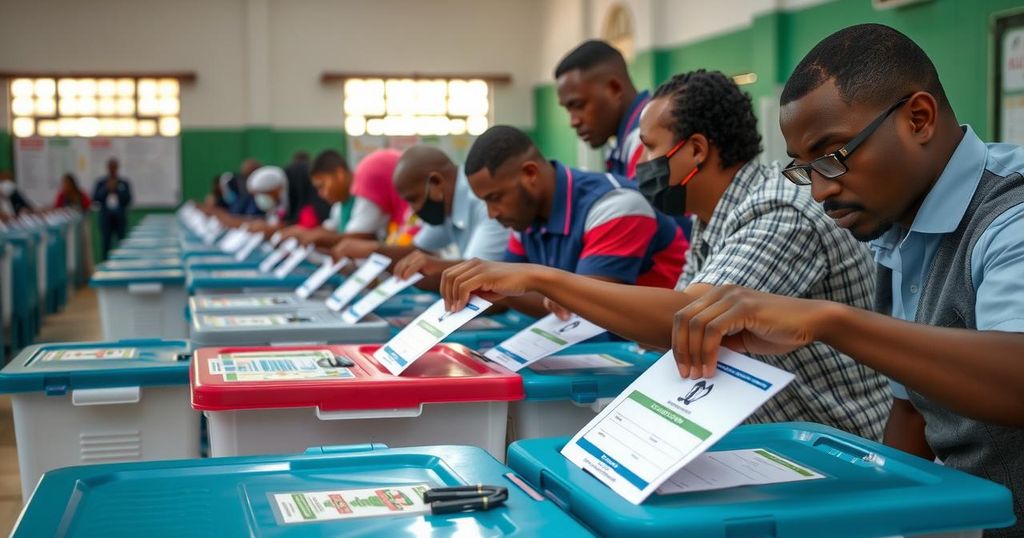Voters in Comoros are participating in parliamentary elections for 33 seats, following President Azali Assoumani’s controversial re-election. The poll has drawn attention due to allegations of irregularities and concerns over possible dynastic succession plans involving Assoumani’s son. Despite calls for a boycott from some opposition parties, others advocate participation to expose government flaws and hasten its decline, with results expected by Friday.
On Sunday, voters in Comoros cast their ballots for the nation’s 33-seat parliament, amid political tensions stemming from last year’s contentious presidential elections, in which President Azali Assoumani was re-elected. The ruling party has rejected opposition claims of electoral fraud, while around 338,000 registered voters participated in the polls, which follow the parliamentary elections that last occurred in January 2020. The Supreme Court has approved nearly 100 candidates to contest the elections, with growing accusations against Assoumani of authoritarianism and concerns regarding a possible succession plan involving his son, Nour El-Fath, who has been granted extensive powers. Despite calls for a boycott from certain opposition groups, others, including Hamidou Karihila of the Hope of the Comoros party, sought to challenge the regime by participating in the elections, highlighting the political stakes in this pivotal electoral process, with results anticipated by Friday.
The political landscape in Comoros has been characterized by instability and allegations of authoritarian governance since President Azali Assoumani seized power in a coup in 1999. Following his recent re-election, several opposition factions have expressed dissent, contesting the legitimacy of the election process. The current parliamentary elections signify another critical moment as multiple parties grapple with internal divisions over participation versus boycott strategies. This election period also emerges in the context of concerns regarding President Assoumani’s potential dynastic ambitions, particularly with the empowerment of his son.
The election for Comoros’ 33-seat parliament signals a significant moment in the nation’s ongoing political struggle, where the ruling party faces accusations of irregularities and authoritarianism. As opposition groups navigate differing strategies regarding election participation, the outcome will likely impact the political trajectory leading up to further presidential elections in 2029. The anticipated results, expected by Friday, will shed light on the current political climate and voter sentiments in the archipelago.
Original Source: www.merimbulanewsweekly.com.au






